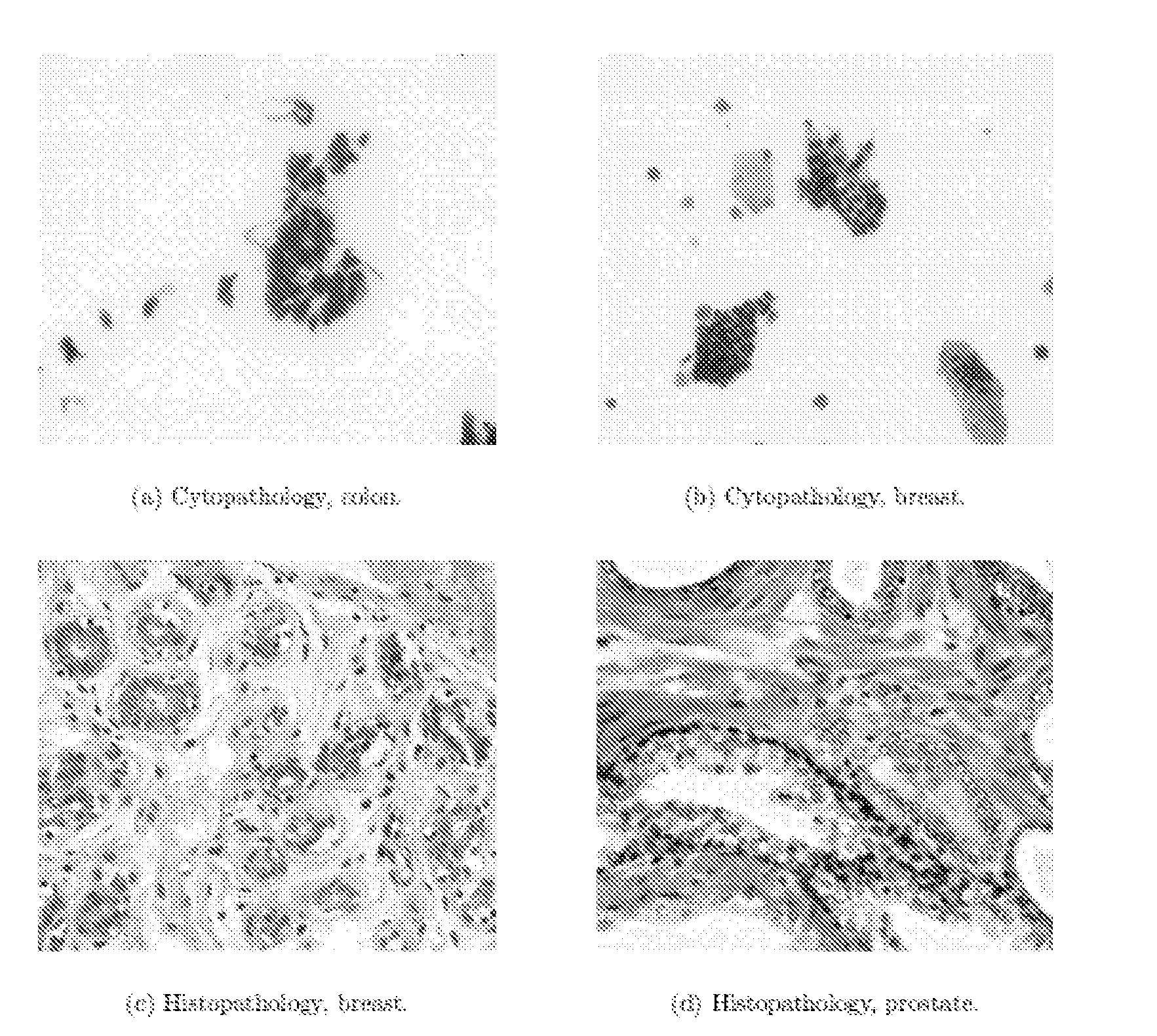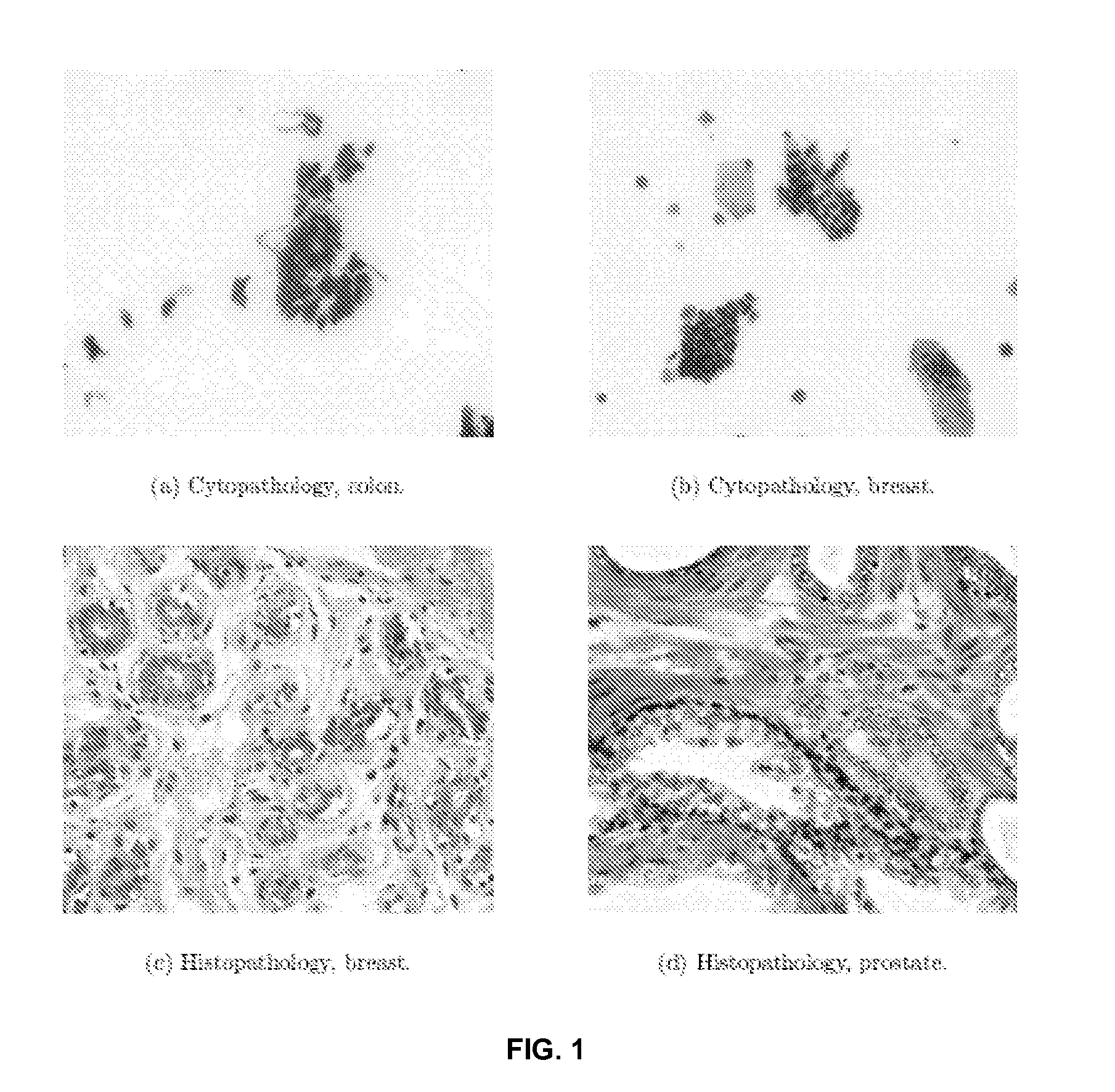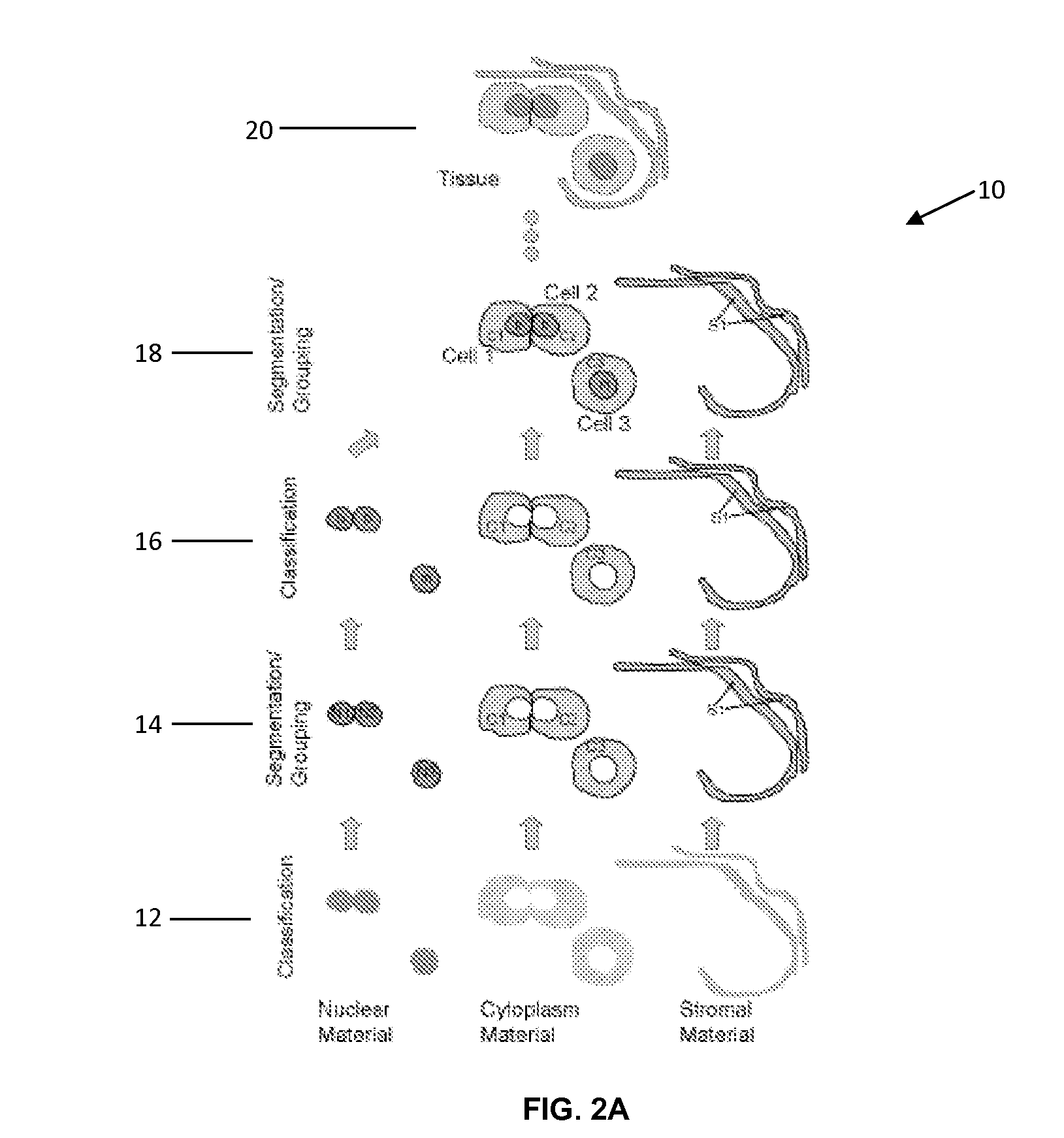Object and spatial level quantitative image analysis
a quantitative and object-oriented technology, applied in the field of image analysis, can solve problems such as the increased risk of breast cancer
- Summary
- Abstract
- Description
- Claims
- Application Information
AI Technical Summary
Benefits of technology
Problems solved by technology
Method used
Image
Examples
Embodiment Construction
[0127]Referring more specifically to the drawings, for illustrative purposes the present invention is embodied in the apparatus generally shown in FIG. 1 through FIG. 70. It will be appreciated that the apparatus may vary as to configuration and as to details of the parts, and that the method may vary as to the specific steps and sequence, without departing from the basic concepts as disclosed herein.
1. OVERVIEW
[0128]1.1 Objectives
[0129]A primary objective of the present invention is the development of techniques for higher-level image analysis, i.e., object-level analysis. While the present invention may be employed in many applications, the discussion disclosed herein primarily is directed to systems and methods to assist in the quantification of breast cancer in histo / cytopathology imagery.
[0130]1.2 Pathology
[0131]1.2.1 Histo- and Cyto-Pathology
[0132]The following are definitions related to the disclosure herein described:
[0133]Pathology: the branch of medicine concerned with dis...
PUM
 Login to View More
Login to View More Abstract
Description
Claims
Application Information
 Login to View More
Login to View More - R&D
- Intellectual Property
- Life Sciences
- Materials
- Tech Scout
- Unparalleled Data Quality
- Higher Quality Content
- 60% Fewer Hallucinations
Browse by: Latest US Patents, China's latest patents, Technical Efficacy Thesaurus, Application Domain, Technology Topic, Popular Technical Reports.
© 2025 PatSnap. All rights reserved.Legal|Privacy policy|Modern Slavery Act Transparency Statement|Sitemap|About US| Contact US: help@patsnap.com



